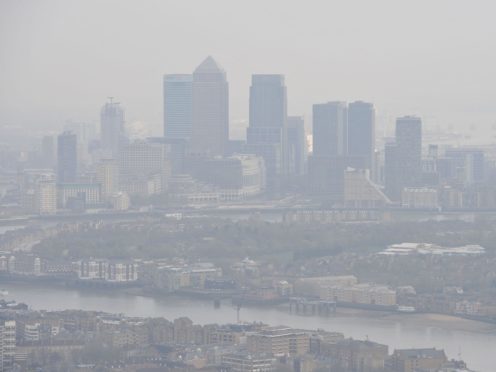More than nine in 10 children around the world are living in areas of toxic air pollution, global health leaders have warned.
The World Health Organisation (WHO) said that globally, 93% of all children live in environments with air pollution levels above its guidelines.
The health body said that schools and playgrounds should be located away from major sources of air pollution like busy roads to try to minimise the risk to children.
More than 90% of the world’s children breathe toxic air every day 😷😷😷😷😷😷😀😷😷😷
WHO estimates that in 2016, 600,000 children died
👧🏻➡️⚰️🧒🏼➡️⚰️👧🏾➡️⚰️🧒🏿➡️⚰️👧🏽➡️⚰️🧒🏻➡️⚰️
from acute lower respiratory infections caused by #airpollution pic.twitter.com/gjGIuJPivR
— World Health Organization (WHO) (@WHO) October 29, 2018
While air pollution is a global problem, it is particularly profound in low and middle income countries, it said.
In low income countries almost all (98%) of children under five are exposed to levels of fine particulate matter (PM2.5) higher than WHO recommended limits.
In high income countries, more than half (52%) of children under five are exposed to air pollution over the safe limits.
In a new report, WHO said that air pollution has a “vast and terrible impact on child health and survival”.
The report warns that exposure to air pollution is an “overlooked health emergency for children around the world”.
The authors say that children are at greater risk than adults from the many adverse health effects of air pollution because their lungs, organs and brains are still maturing.
Meanwhile youngsters breathe faster than adults, taking in more pollutants.
They are also closer to the ground, where some pollutants have higher concentrations, the authors added.
Both indoor and outdoor air pollution contributed to respiratory tract infections that killed more than half a million children under five and 52,000 children aged five to 15 in 2016, estimates suggest.
The report details many other health problems linked to air pollution exposure, including adverse birth outcomes, effects on neurodevelopment, childhood obesity, lung function, asthma and childhood cancers.
Youngsters exposed to high levels of air pollution may also be at greater risk of chronic diseases such as cardiovascular disease later in life, WHO warned.
“Polluted air is poisoning millions of children and ruining their lives,” said Dr Tedros Adhanom Ghebreyesus, WHO’s director-general.
“This is inexcusable. Every child should be able to breathe clean air so they can grow and fulfil their full potential.”
Dr Maria Neira, director of WHO’s department of public health, environmental and social determinants of health, added: “Air pollution is stunting our children’s brains, affecting their health in more ways than we suspected.
“But there are many straightforward ways to reduce emissions of dangerous pollutants.”
WHO said that all countries should work towards meeting its global air quality guidelines.
Meanwhile, steps to minimise children’s exposure to polluted air could include schools and playgrounds being located away from major sources of air pollution like busy roads, factories and power plants, the health body said.










